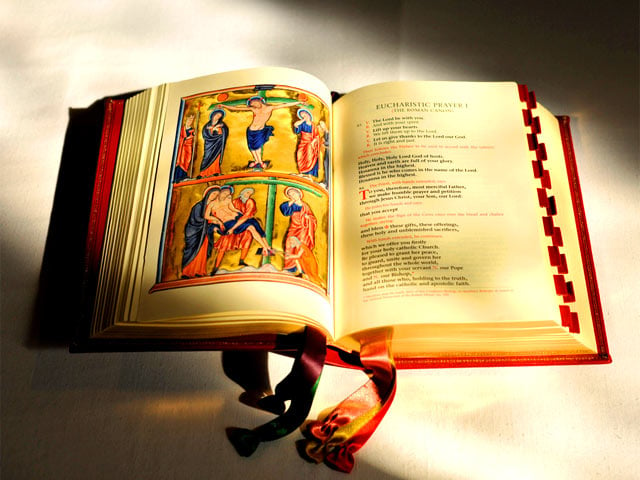- Home
- Our Community
- Our Faith
- Our Ministries
-
Parish Life
- Calendar of Events
- St. Aidan's Video Links
- Parish Blog
- News Archive
- Mass Etiquette and Information
- Ad Orientem News and Facts
- Catholic Links
- Prayers and Announcements
- Luis Dizon Reflections - Archive
- Bulletin
- Contact Us
- Search

The Abrahamic Covenant (2nd Sunday of Lent)
Click here for this Sunday’s readings
In Genesis 12-15, God calls Abraham out of Haran to settle in the land of Canaan, after promising that he would become the father of a great nation, and that through him all the nations would be blessed (Gen. 12:1-3) Abraham brings his nephew Lot with him, but they part ways (Gen. 13). Abraham then comes to Lot’s rescue after he is taken captive in battle (Gen. 14).
This results in a public triumph for Abraham, but despite this, he still grapples with the fact of his childlessness, which seemed to go in the face of God’s promise. This leads to the exchange between God and Abraham that precedes our reading:
After these things the word of the Lord came to Abram in a vision, “Do not be afraid, Abram, I am your shield; your reward shall be very great.” But Abram said, “O Lord God, what will you give me, for I continue childless, and the heir of my house is Eliezer of Damascus?” And Abram said, “You have given me no offspring, and so a slave born in my house is to be my heir.” But the word of the Lord came to him, “This man shall not be your heir; no one but your very own issue shall be your heir.” (Gen. 15:1-4)
This dialogue reaffirms the initial promise God made back in Gen. 12:1-3. The main difference is that this time around, in our Old Testament reading, God ratifies the promise with a formal covenant ritual. By making (or “cutting” as original the Hebrew verb goes) a covenant with Abraham, God gives the promise a special solemnity and significance in His plans. It is significant that God’s presence (represented by the smoking fire pot) passes between the animals alone while Abraham sleeps. This signifies that God’s promise is unconditional: He will fulfill it without any conditions on Abraham’s part. The latter merely has to trust Him.
This episode of salvation history reminds us that God always stays true to His promises, even when they seem impossible. We can therefore trust all the promises God makes for us in Scripture, and that He will fulfill them in His own time and manner.
More importantly, it shows us the extent of God’s plan to save humanity. The Abrahamic covenant is just the beginning of a redemptive plan that culminates in the coming of Jesus as Saviour. During Lent, can look back at how God has been working throughout history to bring this plan about, and how all the promises find their ultimate fulfillment in the death and resurrection of Christ.
J. Luis Dizon
